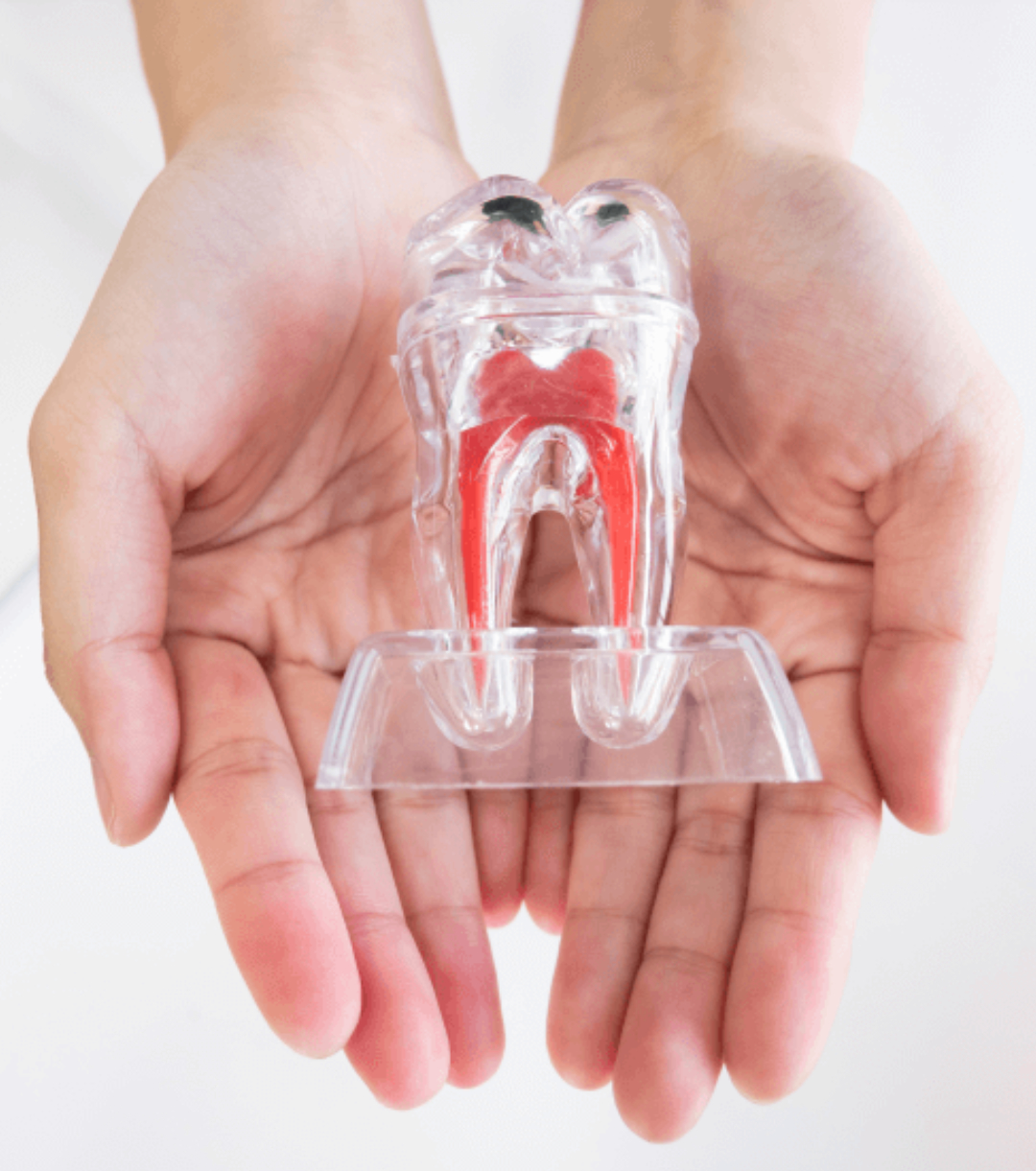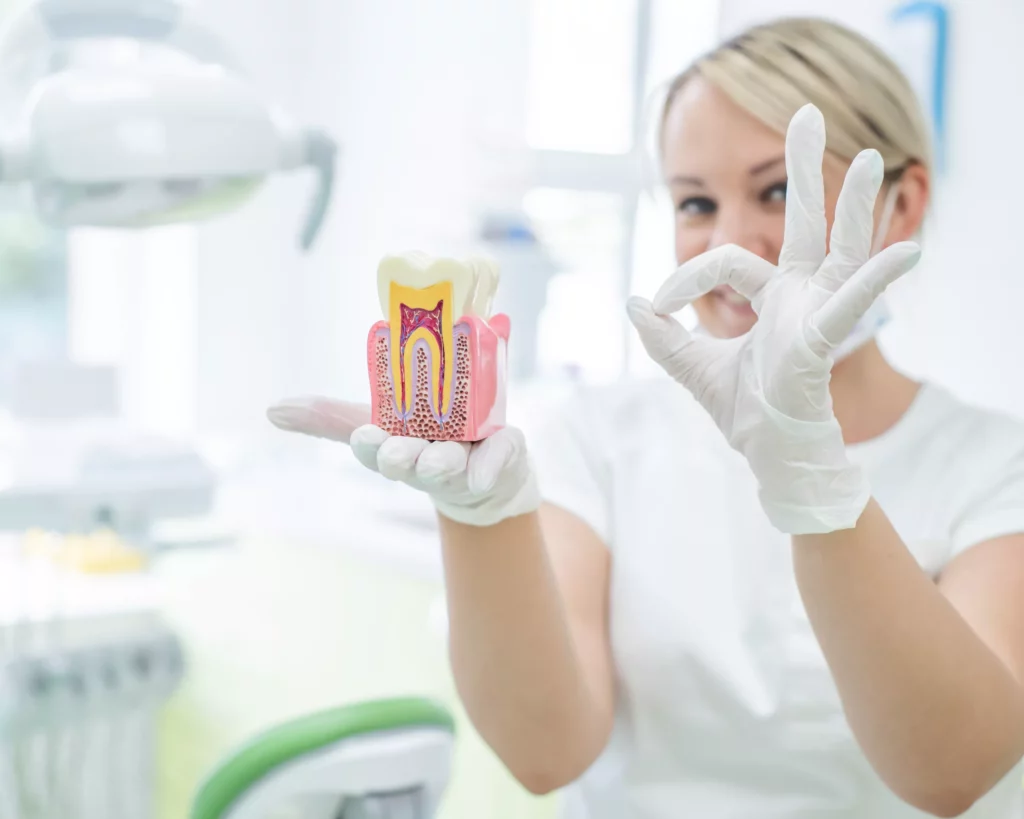What is a Root Canal ?
Root canal treatment, also known as endodontic therapy, is a dental procedure aimed at saving a severely damaged or infected tooth. When a tooth’s pulp (the innermost part containing nerves and blood vessels) becomes infected due to decay, trauma, or other factors, a dentist assesses the situation.
Common symptoms include severe toothache, swelling, and sensitivity to hot or cold. During the root canal procedure, the dentist numbs the affected tooth, removes the infected pulp, thoroughly cleans and shapes the root canals, and places a biocompatible material (usually gutta-percha) inside to seal them. Local anesthesia ensures a painless experience. The access opening is temporarily sealed, allowing the surrounding tissues to heal.
Finally, a permanent crown or restoration is placed to protect the tooth and restore its function. Root canal treatment offers benefits such as pain relief, tooth preservation, and a natural appearance. Aftercare involves maintaining good oral hygiene and attending regular dental check-ups to monitor the tooth’s health. Remember, if you suspect any dental issues, consult your dentist promptly! 🦷



























